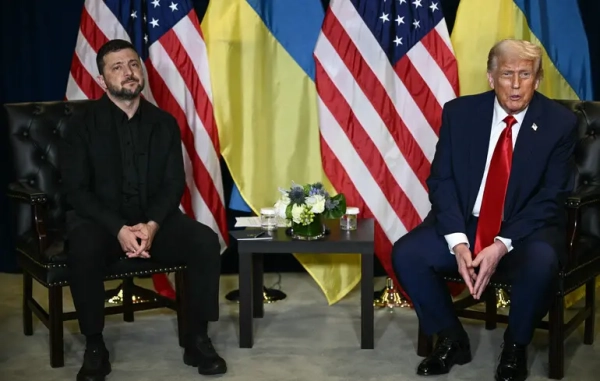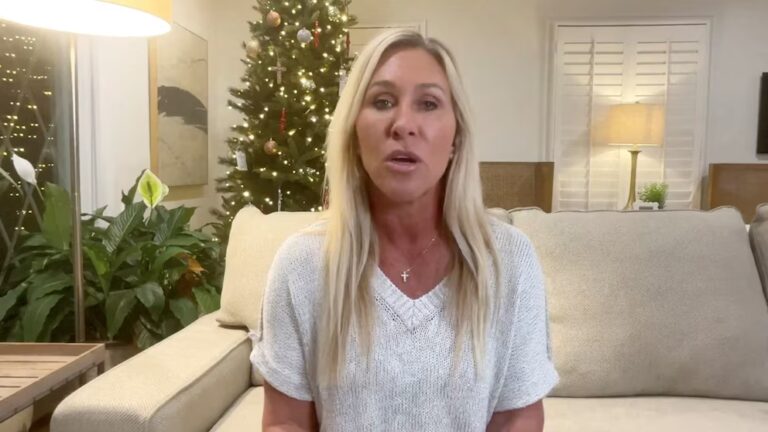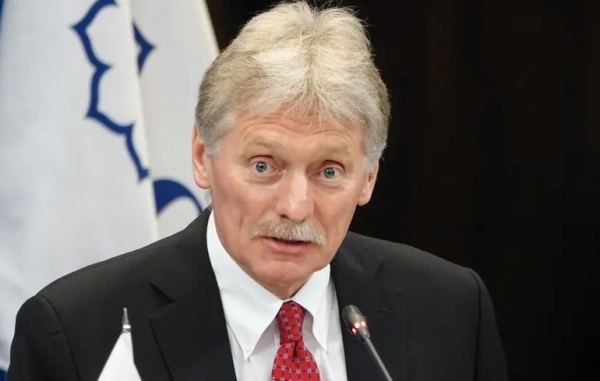
© Getty Images The Trump government has grown tired and desires a swift end to the conflict in Ukraine.
Gratitude is scarce in Kyiv this week. The ultimatum from US President Donald Trump to Ukraine’s leaders, demanding acceptance of a settlement by Thanksgiving, struck Ukraine unexpectedly, like an explosion.
Ukrainian President Volodymyr Zelensky stated that the nation is facing a dilemma: “a surrender of self-respect or the prospect of losing a crucial ally” — namely, opposing the White House if it disregards the accord. European figures, many present at the G-20 summit in South Africa, swiftly reaffirmed their backing for Ukraine in the face of Trump’s pressure, according to Ishan Tharoor, a foreign affairs columnist for The Washington Post.
The 28-point framework, put forth by the Trump group, apparently after deliberations with Russian counterparts, oversteps several boundaries for Ukraine. It would entail Kyiv ceding to Russia territory not seized militarily in the years after the full-scale incursion in 2022.
The plan also necessitates Kyiv diminishing its armed forces’ size, refusing to accommodate NATO forces on its soil, and inscribing into its constitution a commitment to never join the NATO military alliance — all devoid of substantial security assurances from the West for Ukraine.
U.S. officials, spearheaded by Secretary of State Marco Rubio and Trump’s special representative Steve Witkoff, engaged in discussions concerning the peace proposal with Ukrainian and European delegates in Geneva, aiming to resolve differences. The participants acknowledged headway in that direction, without elaborating on alterations to the document.
European Commission President Ursula von der Leyen expressed Europe’s opposition to imposing limitations on Ukraine’s military, which could leave it “exposed to potential future attacks,” and seeks a resolution that “halts the hostilities” but does not “plant the seeds of future discord.”
Amid worries from Ukraine and Europe, Trump informed reporters that the arrangement was not necessarily the “last word.” However, he spoke plainly regarding Zelensky’s need to treat the proposal with gravity.
The commentator suggests that Trump’s words reveal a more profound weariness. The White House has already curtailed assistance to Ukraine, with Europe now contributing the major part of the support. For a number of months, Trump’s eagerness to finalize a peace agreement has been at odds with both Ukraine’s unwillingness to yield its territory to Russian invaders and Russian President Vladimir Putin’s questionable commitment to earnest dialogues.
But recent occurrences have suggested to European officials that Trump is, yet again, siding with Russia.
“I'm jaded. It appears the globe is falling apart, and we are witnessing it in real-time,” a Kyiv diplomat confided to the Atlantic magazine.
Analysts within American foreign policy circles concur with this assessment.
“This is unthinkable for Ukraine and weakens US national security,” stated Bridget Brink, a former US ambassador to Kyiv, implying that the likely compromises could be likened to European appeasement of the Nazi regime prior to World War II.
However, there are additional aspects at play. At the battle lines, Ukraine is struggling to hold back Russia, and Pokrovsk, a vital logistics and rail center, teeters on the brink of collapse following sustained intense battles. In Kyiv, an even more damaging corruption affair has eroded faith in Zelensky’s administration and focused resentment on his inner circle, notably the head of the presidential office, Andriy Yermak, a participant in the Geneva discussions.
” Trump's strategy might also be viewed as a kind of off-ramp for both sides engaged in the conflict: it presents Putin with an escape from global seclusion, and Zelensky with an opportunity to permit the Ukrainian populace to determine the path forward, with a pledge to conduct elections 100 days following the accord’s enactment and clemency for all Russian and Ukrainian officials concerning their wartime actions (encompassing any Zelensky associates),” Tharoor articulates.
The columnist further notes that while a majority of European leaders have signaled a wish to reassess Trump’s scheme, the Hungarian Prime Minister has endorsed it.
Orban is not singular in his pursuit of a prompt resolution, irrespective of the implications for Ukraine’s self-determination and future. A pro-Russian faction is taking shape in the European Parliament, comprising politicians from a selection of Europe’s burgeoning far-right parties.
Other commentators assert that Kyiv’s window for securing more favorable conditions is closing.
“Considering the increasing indications of Ukraine’s military frailty and Russia’s aptitude to sustain its offensive operations, simple prudence dictates pursuing a swift peace on acceptable terms,” declares political scientist Anatol Liven.
He appended that in the times ahead, Trump’s arrangement might not seem as bitter to embrace: “an agreement ensuring three-quarters of Ukraine remains independent and preparing for EU membership would essentially represent a triumph for Ukraine, albeit with certain provisos.”
Trump previously remarked on the advancement of the talks in Geneva. He posted on his social media, “wait and see to believe it, but favorable developments are transpiring.”






